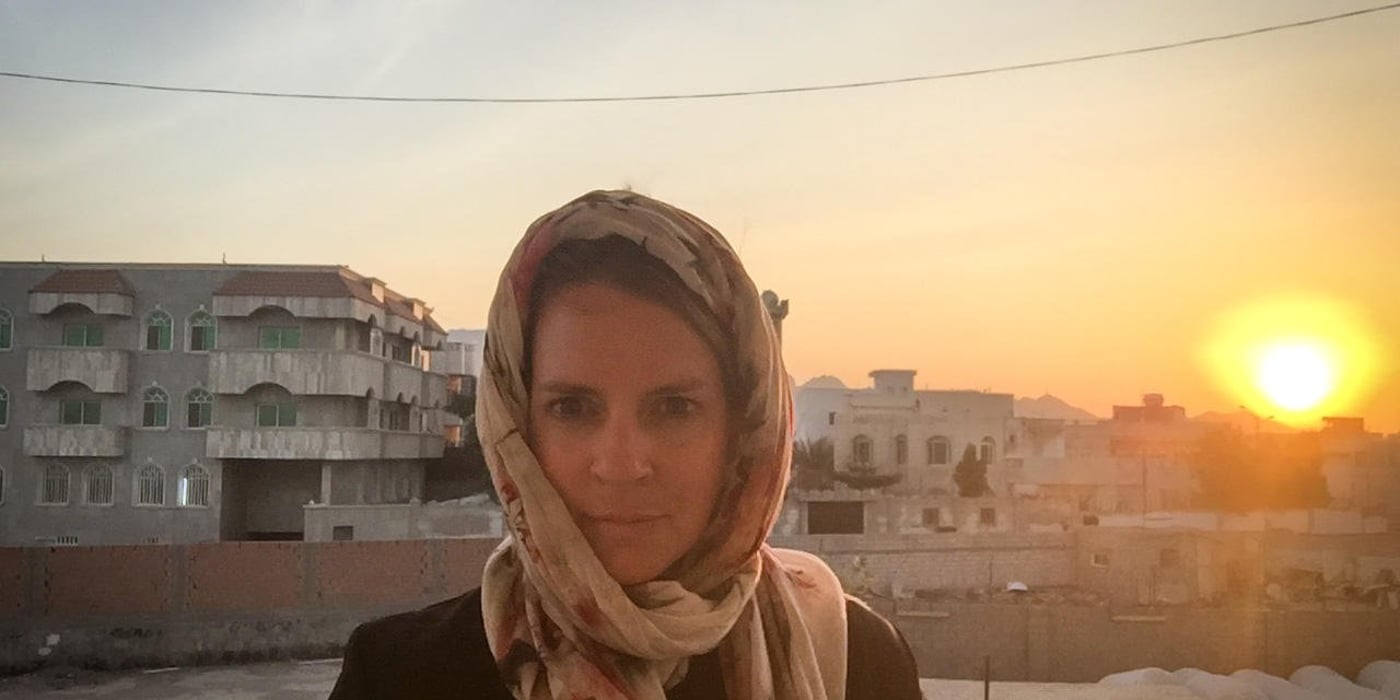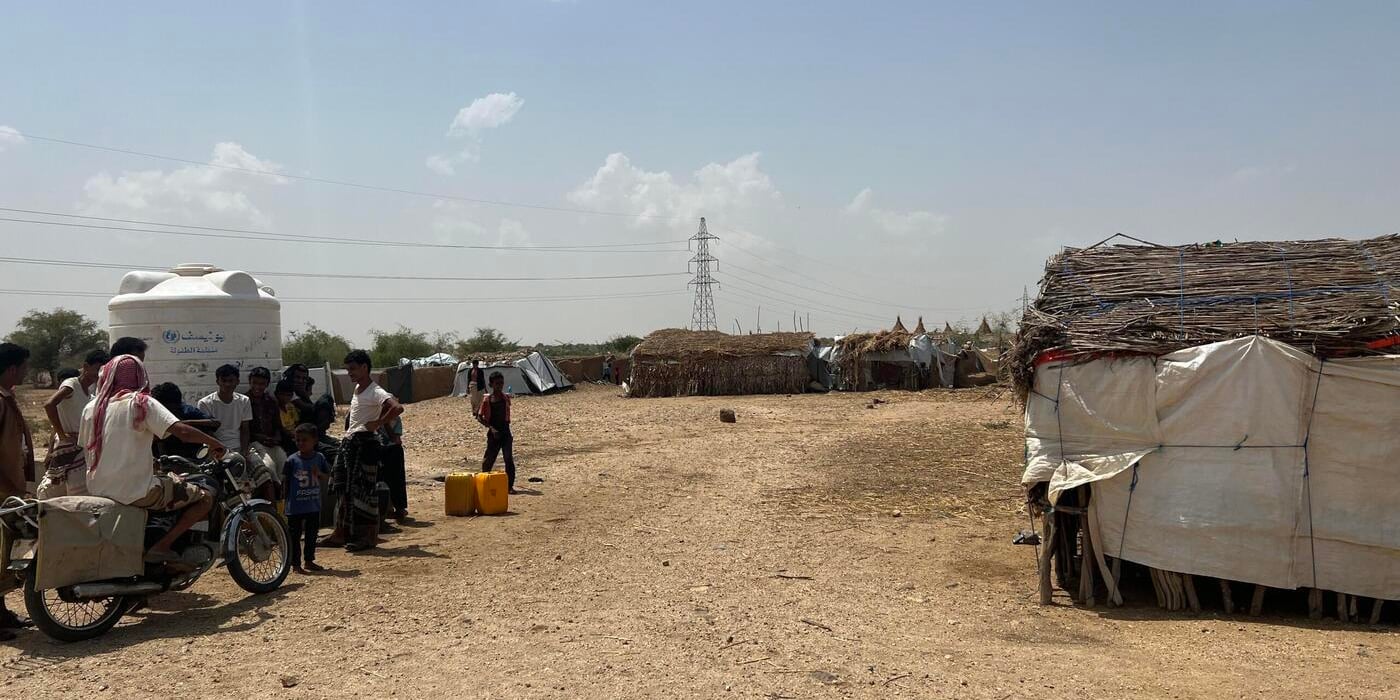
“There were airstrikes falling very close to our houses. It was pretty frightening.”
Suze van Meegen from Australia has, since June 2017, worked as the Norwegian Refugee Council’s (NRC) Protection and Advocacy Adviser in Sana’a, the capital of Yemen, located at the southern tip of the Arabian Peninsula. In December 2017, violence escalated in the country dramatically, and after almost three years of conflict, more than 22 million people need humanitarian assistance.
An obviously man-made crisis
“The thing I find most difficult about the crisis in Yemen, is how very obviously man-made it is and the extent to which several influential governments are contributing to it,” says van Meegen, who’s work involves talking to people about the conflict, analysing data, looking at economic factors and trying to make sure people know what is happening in Yemen. “It’s not in the media as it should be.”
She describes people who have so few resources that they are forced to make life-or-death decisions every day.
“People tell us about the choices they have to make: should I pay for the transport to bring my child who might have cholera to hospital or should I buy food for my other five children?”
“People tell us about the choices they have to make: should I pay for the transport to bring my child who might have cholera to hospital or should I buy food for my other five children?”
All of this, she says, is because of political decisions being made by countries like the US, the UK, France and Norway.
“I was pleased to see that Norway has stopped selling weapons to the United Arab Emirates as a step towards recognising that they’re very probably being used in violation of people’s rights.”
Van Meegen feels that the crisis in Yemen is something that could happen anywhere.
“Previously, a lot of people were going about their lives, going to university, going to their jobs, and then suddenly they had this high level of violence thrust upon them,” she says. “A country that was previously a tourist destination is now being destroyed, its people fleeing their homes and unable to get enough to eat.”
Forced to leave
Van Meegen is one of six international staff on NRC’s field team who were relocated from the country in December. This happened after they had spent seven days in a basement during some very serious violence in Sana’a.
“It was the highest level of violence that had been seen in that area since 2015,” she says. “I should say we left involuntarily, because we would all much prefer to be there. But we also understand that unless it’s safe, we can’t do our jobs.”
Van Meegen and her colleagues were relocated, along with more than 100 others to Djibouti, with support from the UN. NRC, like many international humanitarian organisations, is dependent on the UN for evacuation in case of emergency. In mid-January she was finally able to go back and resume her work in Yemen.
“I found it immensely frustrating. I would much rather be there, to be able to do my job properly, but also in solidarity with people we work with every day,” she says, admitting embarrassment that some of the staff are protected in case of violence, while the local people they sit next to continue to go to work every day and put themselves at risk.
Operations continue
While van Meegen was waiting for the UN to let her go back to Yemen, NRC still had more than a hundred Yemeni staff operating in the war-torn country.
“Our operations continue and the full credit goes to our Yemeni staff,” she says. “The risk for them increases with the levels of violence, and of course their own families are also affected.”
“I’m really sorry,’ she recalled hearing in a phone call from one of her finance staffers, ‘there’s going to be a report that’s late this month, but it is because I’m in my basement, we don’t have any water, we don’t have any power, and my laptop battery has died.’”
Her colleague and his family had spent seven days in their basement with no power, limited food and tanks in the streets outside.
“His 13-year-old neighbour was shot by a sniper when he went outside. The emotional toll on the staff and the psychosocial strain for them is immense.”
“His 13-year-old neighbour was shot by a sniper when he went outside. The emotional toll on the staff and the psychosocial strain for them is immense.”
Van Meegen describes the situation across Yemen as unstable and constantly changing, with ground clashes, increased check points or more bombing. But NRC’s team continue going to work every day and delivering.
Giving cash and education
NRC’s operation currently provides cash to people in areas where they have lost access to employment and livelihoods.
“Cash gives people the ability to make choices about what they need, whether it’s food, transport or medicine,” she says. “It’s also enabling markets to continue, so that people can keep going with their businesses.”
She would also love to see more investment in education in the coming year. Close to 2,000 schools in Yemen have closed over the past three years, a lot of them because of attacks or because they are housing people who have fled their homes. This has left 4.5 million children at imminent risk of, or already out of school.
“I think NRC has a really good opportunity to help teachers get back into classrooms and children get back to school.”
In addition to cash and education, NRC provides people in Yemen with safe water and shelter. In 2017, we reached 650,000 people with assistance, but the current state of Yemen makes operations very difficult and very expensive.
“We’re trying to make the money we spend go as far as possible for people. More funding in Yemen is absolutely needed across all sectors. It will help us scale up and reach more people,” she says.
“It’s highly insecure”
Another obstacle to the humanitarian work is insecurity. According to Van Meegen, to move from one part of the country to another, NRC’s staff need to leave Yemen, fly to Djibouti and then fly back into Yemen.
“This really slows what we can do. To drive from Sana’a in the north of Yemen to Aden on the southern coast, you have to drive through roughly 48 check points, it’s highly insecure.”
The contrast to her peaceful home country is sharp. Working in a complex crisis such as Yemen, has made her reflect on her own level of privilege and good fortune, she says.
“Coming from a country to which I can return and access everything I need, where I know my family is safe, I am exceptionally grateful. I don’t take it for granted.”
She explains how the work leaves her with a range of different feelings.
“It’s frustrating, because you see things that are horrendous, that people are suffering unnecessarily. And equally it’s energising and encouraging to see the number of people in a humanitarian crisis who are working very hard to address problems in their own country; keep people alive and keep people safe.”
No food or fuel
For years, a de-facto blockade has prevented food and fuel from coming to Yemen at the rate required. In theory, ports and roads are open, but in practice, bureaucratic impediments and military check points prevent supplies from coming through as they should. In addition, a full blockade was imposed in November 2017.
Since 20 December, the Saudi-led coalition has allowed commercial goods to come into Yemen, but they’ve said that that will only be allowed for a period of 30 days.
“We’ll need to wait and see what will happen beyond that period. If the blockade is imposed again, I honestly cannot imagine how terrible things will get for people.”
In addition to lifting the blockade, all parties to the conflict need to allow humanitarian agencies to deploy aid, rather than blocking that assistance. Influential countries need to really push for more permanent solutions.
“Countries in the west need to stop supplying weapons, they need to put pressure on anyone involved in the conflict to come back to the table and look for a solution. The population’s needs won’t decrease unless we have a political resolution.”
Thousands of people could die
At the moment, Suze van Meegen is not very optimistic about Yemen’s immediate future.
“If the US and the UK and other members of the security council don’t act in the next few months, I feel very pessimistic about what will happen in Yemen,” she says. “More and more people will be pushed into starvation. We have been warned that we could start seeing thousands of people die each day.”
She does believe, however, that steps can be taken to actually resolve what is happening.
“If, on the other hand, US, UK and others take responsibility for what is happening and the security council recognises that they have the power to stop this, then I feel more optimistic about our chances of evading the worst outcomes for Yemeni people.”


